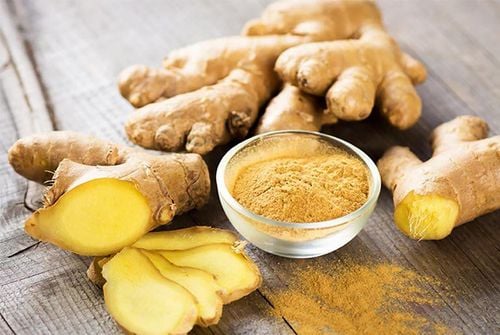A salty taste in the mouth can sometimes be normal. However, it may also indicate various local or systemic health issues. While it typically isn't a cause for concern, it's important to see a doctor if the salty taste is accompanied by other symptoms.
1. Dry mouth
Along with a salty taste, you might also feel like there is cotton in your mouth. This is known as xerostomia or dry mouth. It can be caused by smoking, aging, or as a side effect of medications.
You may also experience:
• Plaque buildup in your mouth
• Thick saliva
• Bad breath
• Sore throat
• Hoarse voice
• Fissured tongue
Dry mouth usually resolves on its own. Ensure you're drinking enough water, and avoid spicy or salty foods until symptoms improve. You can also use sugar-free gum or over-the-counter mouthwashes to help stimulate saliva production.
2. Dehydration
Dehydration is another common cause of a salty taste in the mouth. It can develop suddenly, such as after diarrhea or vomiting, or more gradually after strenuous activity in hot weather.
Other symptoms of dehydration include:
• Intense thirst
• Reduced urination
• Dark urine
• Fatigue
• Dizziness
• Feeling weak
Doctors recommend drinking 6-8 cups (about 2 liters) of water per day. You may need more if you're ill, the weather is hot, or you're engaging in intense physical activity.
If untreated, dehydration can lead to severe complications such as seizures, heat exhaustion, kidney issues, or even life-threatening conditions like hypovolemic shock.
Most adults can recover by drinking more fluids, but in severe cases, hospitalization may be required for IV electrolytes repletion
3. Bleeding
A salty or metallic taste can sometimes indicate mouth bleeding. This could be caused by eating sharp foods like chips or brushing your teeth too vigorously.
If your gums bleed frequently after using dental floss or brushing, you may have gum disease (gingivitis), which causes pain and swelling over time.
If untreated, gum disease can lead to infections. If you're experiencing unexplained bleeding or pain in your mouth, see a dentist.
4. Oral infections
If left untreated, gingivitis can lead to an infection called periodontitis. Early-stage periodontitis doesn't cause long-term damage, but in severe cases, it can damage your jawbone and teeth.
If your gingivitis has progressed to periodontitis, you may experience:
• Bad breath
• Loose teeth
• Gum abscesses
• Pus under teeth
Bleeding could also be the first sign of other infections, such as oral thrush (a yeast infection in the mouth). You might notice white patches or feel pain. Some people experience a salty taste, while others may lose their sense of taste.
Salty taste can also be caused by the human papillomavirus (HPV), which may not show symptoms in the early stages but could eventually cause hoarseness or coughing up blood as the infection progresses.
5. Post-Nasal Drip
Post-nasal drip, which occurs when you have sinusitis or allergies, can also cause a salty taste. Mucus from the nose accumulates in the throat, and when it mixes with saliva in the mouth, it can create a salty sensation. You may also experience nasal congestion, a runny nose, or difficulty breathing.
Most colds and allergies will resolve on their own. You can help by boosting your immunity, resting, staying hydrated, blowing your nose, or using cold medicine or antihistamines. Saline nasal sprays or mouth rinses can help alleviate symptoms and clear nasal passages.
You should see a doctor if:
• Symptoms persisted for more than 10 days
• You have a high fever
• You experience sinus pain
• Your mucus is yellow or green
• You have blood in your mucus
6. Acid or Bile Reflux
A sour or salty taste in the mouth could indicate acid or bile reflux. These conditions can occur separately or together. While their symptoms are similar, acid reflux happens when stomach acid enters the esophagus, whereas bile reflux occurs when bile from the small intestine enters the stomach and esophagus.
You may also experience:
• Severe upper abdominal pain
• Frequent acid reflux
• Nausea
• Vomiting bile
• Hoarseness or coughing
• Unexplained weight loss
If untreated, reflux can lead to gastroesophageal reflux disease (GERD), a precancerous condition known as Barrett's esophagus, or even esophageal cancer. Lifestyle and dietary changes, medications, and sometimes surgery can help treat reflux.
7. Nutritional Deficiencies
A salty or metallic taste may also be due to a deficiency in certain nutrients. This can develop quickly or over several years.
You might also experience:
• Fatigue
• Irregular heartbeat
• Pale skin
• Personality changes
• Confusion
• Numbness in your hands and feet
Nutritional deficiencies are treated with specific vitamins or supplements. For example:
Folate deficiency is treated by eating a balanced diet and taking folate supplements as prescribed.
Vitamin B12 deficiency can improve with dietary changes, and some people may need oral supplements or B12 injections for severe cases.
Vitamin C deficiency is treated with supplements and increased intake of vitamin C-rich foods.
8. Sjögren's Syndrome
Sjögren's syndrome occurs when your immune system attacks moisture-producing glands, including the salivary glands and tear ducts. This leads to a salty taste or dry mouth and dry eyes.
You may also experience:
• Joint pain
• Skin inflammation
• Dry vagina
• Dry cough
• Fatigue
This condition is often associated with other autoimmune disorders like lupus or rheumatoid arthritis. Many people manage oral symptoms using over-the-counter treatments like mouthwash or drinking more water. Some may require prescription medications or surgery.
9. Other possible causes
A salty taste could also be due to:
• Neurological causes: Cerebrospinal fluid (CSF) leaks can occur when there's a tear or hole in the membrane surrounding your brain. The leak allows fluid to escape, entering your nose and mouth. See a doctor if you notice fluid leakage along with nausea, vomiting, neck stiffness, or altered consciousness.
• Hormonal changes: Gums may bleed or become more sensitive during pregnancy. A metallic taste is common, but the changes vary between women. Menopause is another time when taste changes can occur.
• Medication side effects: More than 400 medications can cause a salty taste. They may also cause dry mouth and other side effects. If you suspect your medication is affecting your taste, consult your doctor.
• Chemotherapy side effects: People undergoing chemotherapy often report changes in taste due to damage to taste buds and salivary glands. Dry mouth is also common, especially in those receiving radiation for head and neck cancers.
10. When to see your doctor
Many conditions that cause a salty taste in the mouth are easily treatable once the underlying cause is identified. Mention any taste changes to your doctor. If the change is sudden and accompanied by other symptoms or signs of infection, seek medical help immediately.
To arrange an appointment, please call HOTLINE or make your reservation directly HERE. You may also download the MyVinmec app to schedule appointments faster and manage your reservations more conveniently.
Reference source: healthline.com
To arrange an appointment, please call HOTLINE or make your reservation directly HERE. You may also download the MyVinmec app to schedule appointments faster and manage your reservations more conveniently.








